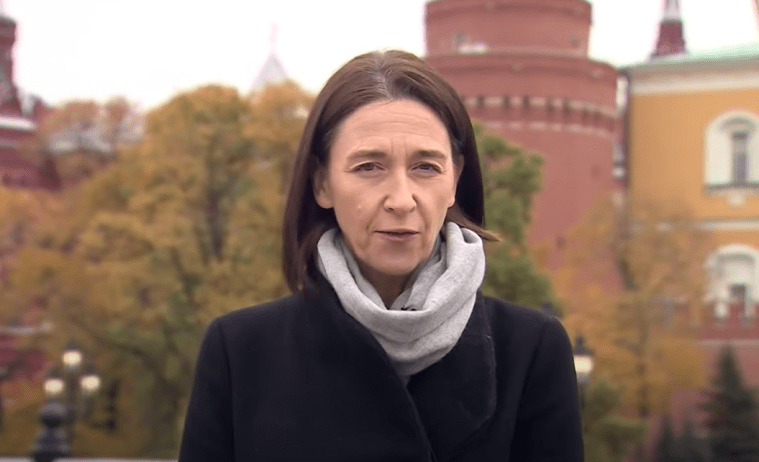Stockholm, August 16, 2021 – Russian authorities should extend the visa of BBC correspondent Sarah Rainsford and allow foreign correspondents to work in the country freely, the Committee to Protect Journalists said today.
In a broadcast on the evening of August 12, Russian state news channel Rossiya 24 reported that the country’s Foreign Ministry would not renew Rainsford’s accreditation or visa, and said she would have to leave the country before her visa expires on August 31, citing unnamed experts and an anonymous Telegram channel covering Russian diplomacy.
In an interview with BBC Radio 4 on August 14, Rainsford called the Foreign Ministry’s decision “devastating” and “shocking.” She said she must leave Russia at the end of the month, and added that she had “been told that I can’t come back, ever.”
CPJ called the Russian Foreign Ministry and emailed the BBC, but both declined to comment. CPJ emailed Rainsford and messaged her on social media, but did not receive any replies. In a statement published on August 13, BBC Director-General Tim Davie called the denial of Rainsford’s visa extension a “direct assault on media freedom,” and urged Russian authorities to reconsider.
“Russian authorities should not use journalists as pawns in their spats with other countries, and should ensure that visas and press accreditations for foreign correspondents are not used as political tools,” said CPJ Program Director Carlos Martínez de la Serna, in New York. “Authorities should make sure that BBC correspondent Sarah Rainsford is able to renew her visa and continue working in Russia.”
Russian Foreign Ministry spokesperson Maria Zakharova posted a statement on her personal Telegram account saying that Rainsford’s visa was “indefinitely withdrawn,” and that statement was reposted on the ministry’s official account.
Zakharova wrote that the move was retaliation for U.K. authorities’ denial of a visa extension to a journalist at an unnamed Russian news agency in 2019, and refusal to grant a visa to any proposed replacement. She also referenced a “stream” of alleged refusals for Russian journalists in the U.K. to cover major events, and alleged “systematic pressure on and slander of Russian media” by U.K. authorities.
She said that the Russian authorities had repeatedly warned their British counterparts that they would “answer in kind” if their complaints were not addressed. Zakharova denied that Rainsford had been told that she could never return, writing that “if they [the U.K.] give a visa to the Russian correspondent, we will give one to Sarah.”
CPJ was unable to establish the identity of the Russian correspondent referred to by Zakharova. In 2019, Russian state-owned news agencies RIA and TASS cited anonymous sources as saying that U.K. authorities had denied one unnamed correspondent a visa extension and refused to issue a visa to another.
Also in 2019, the U.K. Foreign Office barred the state-funded outlets Russia Today and Sputnik from attending a global conference on media freedom in London for their “active role in spreading disinformation,” a decision that CPJ condemned at the time.
The U.K. Foreign, Commonwealth, and Development Office stated that “Russian journalists continue to work freely in the U.K., provided they act within the law and the regulatory framework,” The Associated Press reported.
Separately, the Russian Foreign Ministry announced last week that it had banned a number of British officials from entering the country in retaliation for U.K. sanctions on Russian citizens for alleged corruption and human rights abuses in Chechnya.
Previously, Russian authorities denied entry to British Guardian correspondent Luke Harding in 2011, as CPJ documented at the time.
